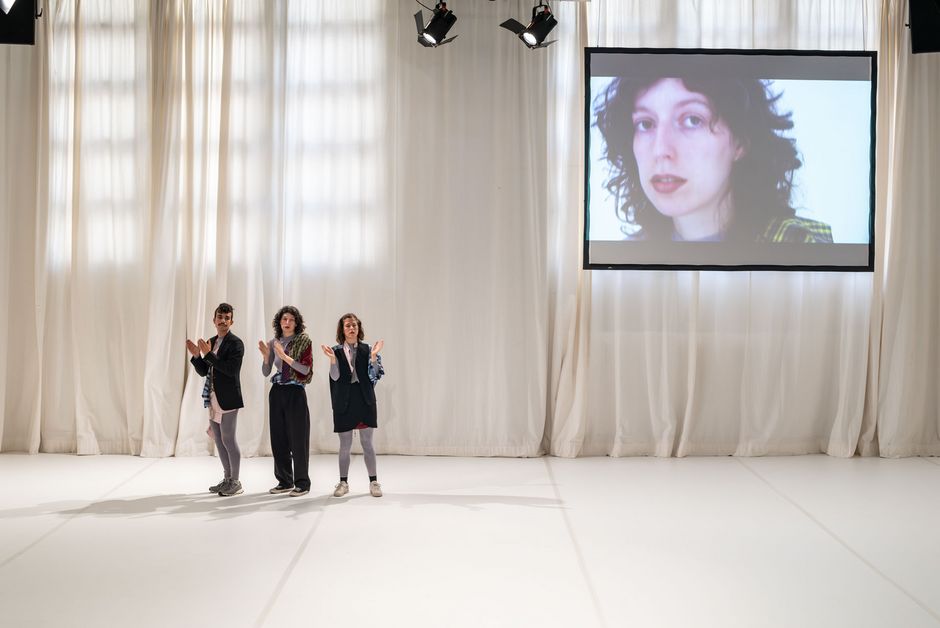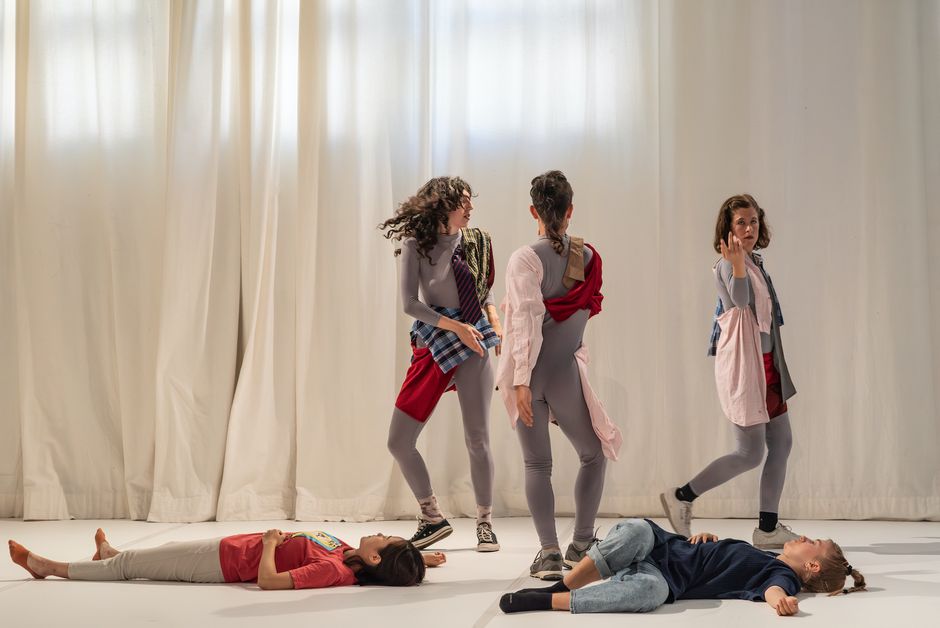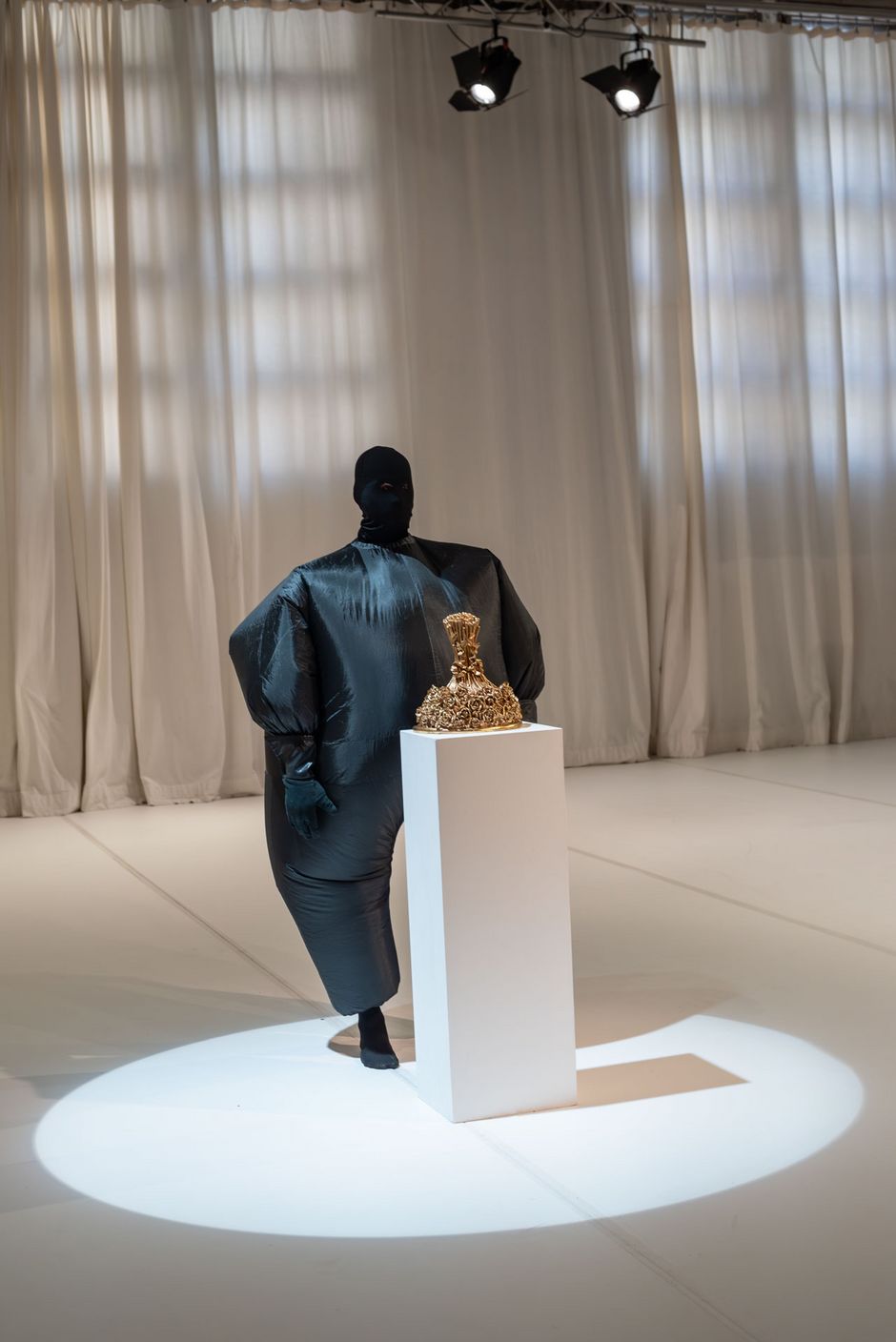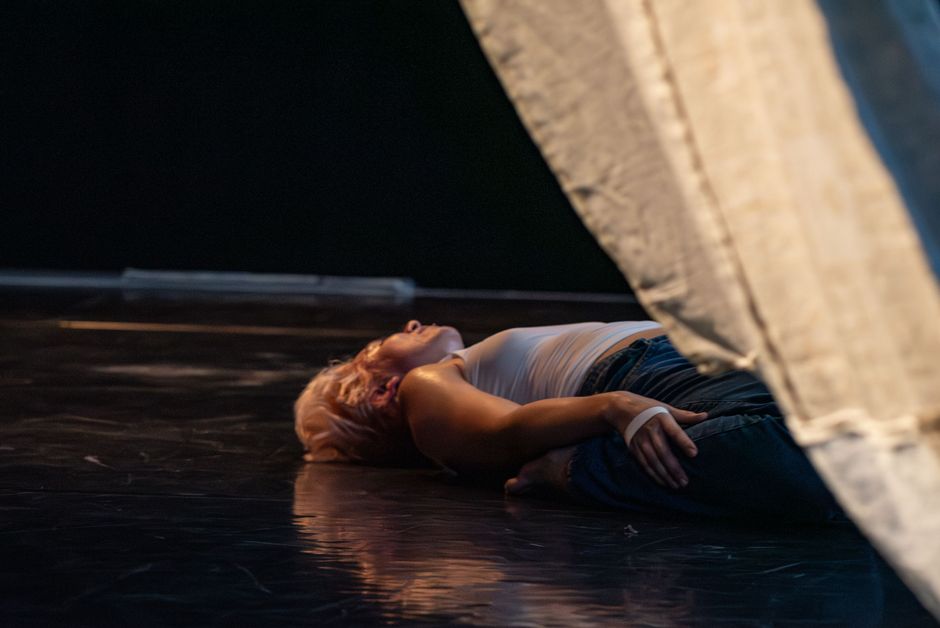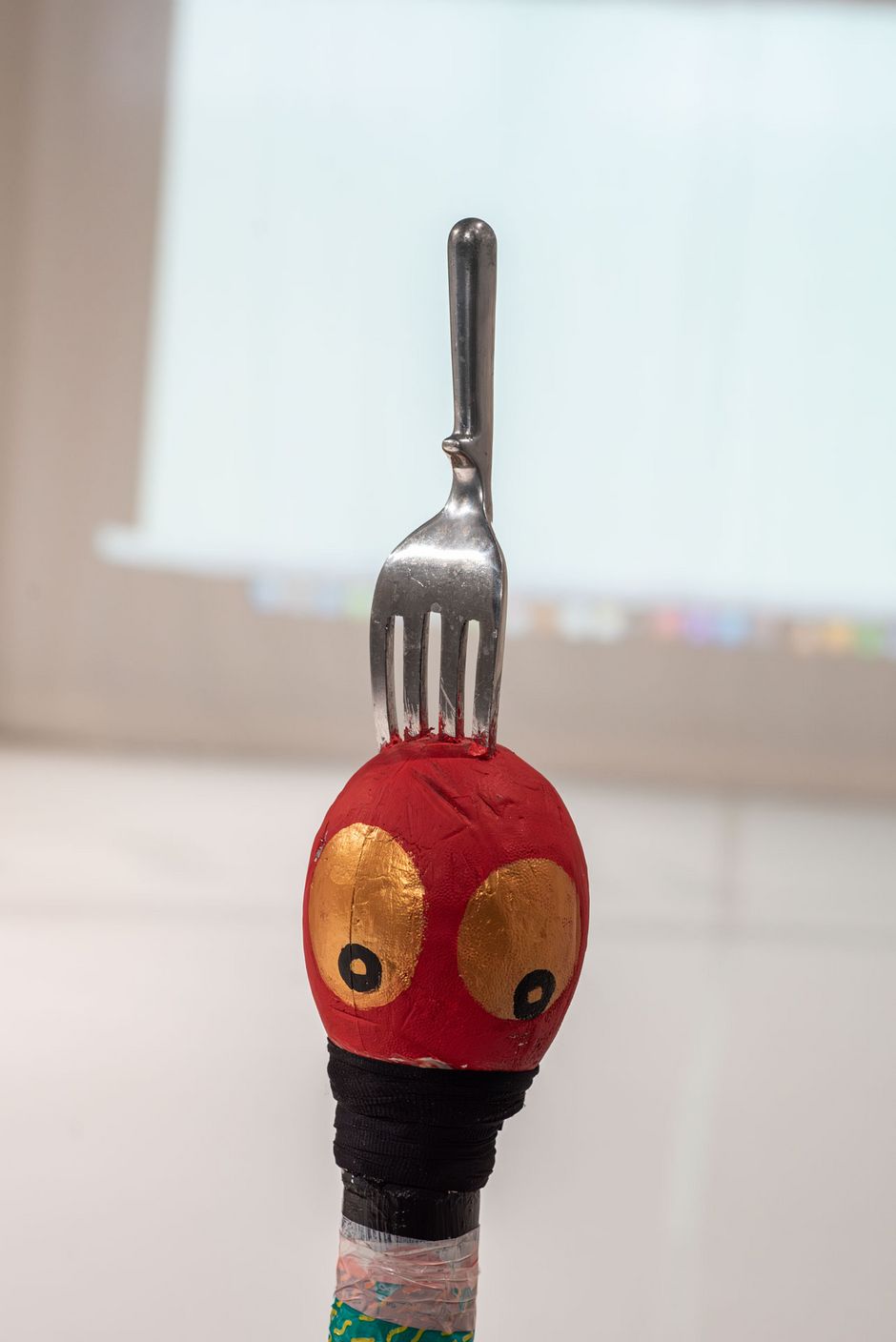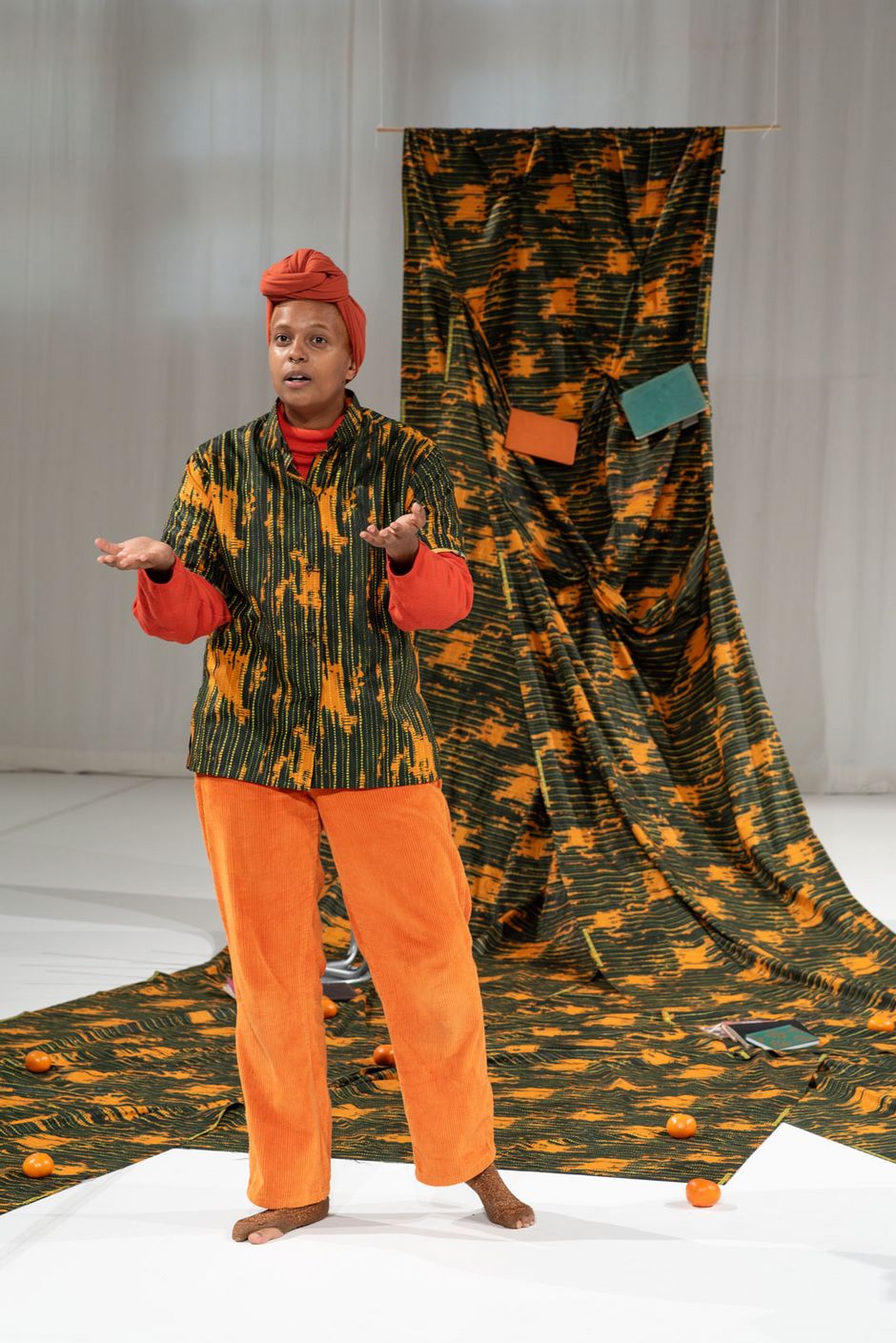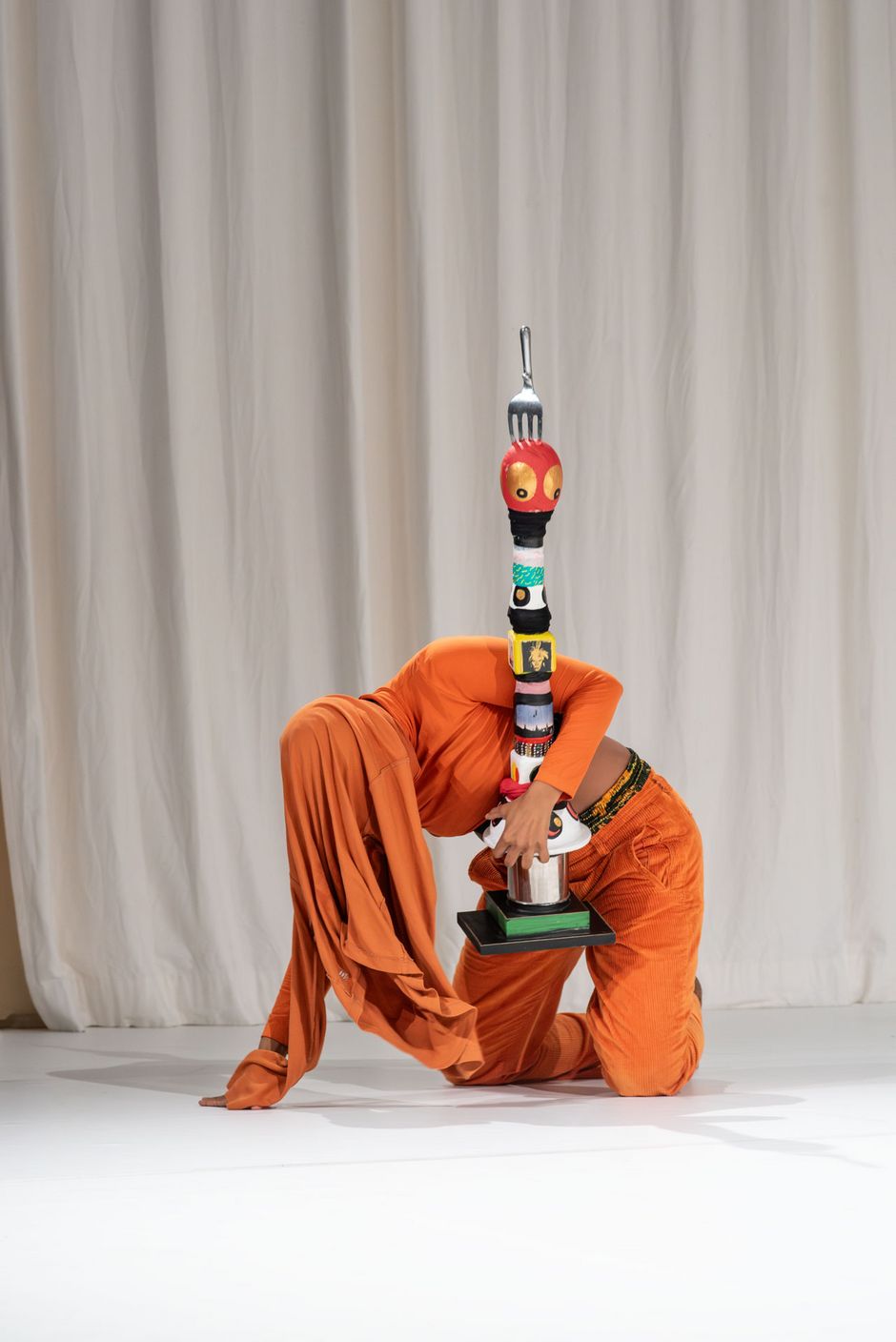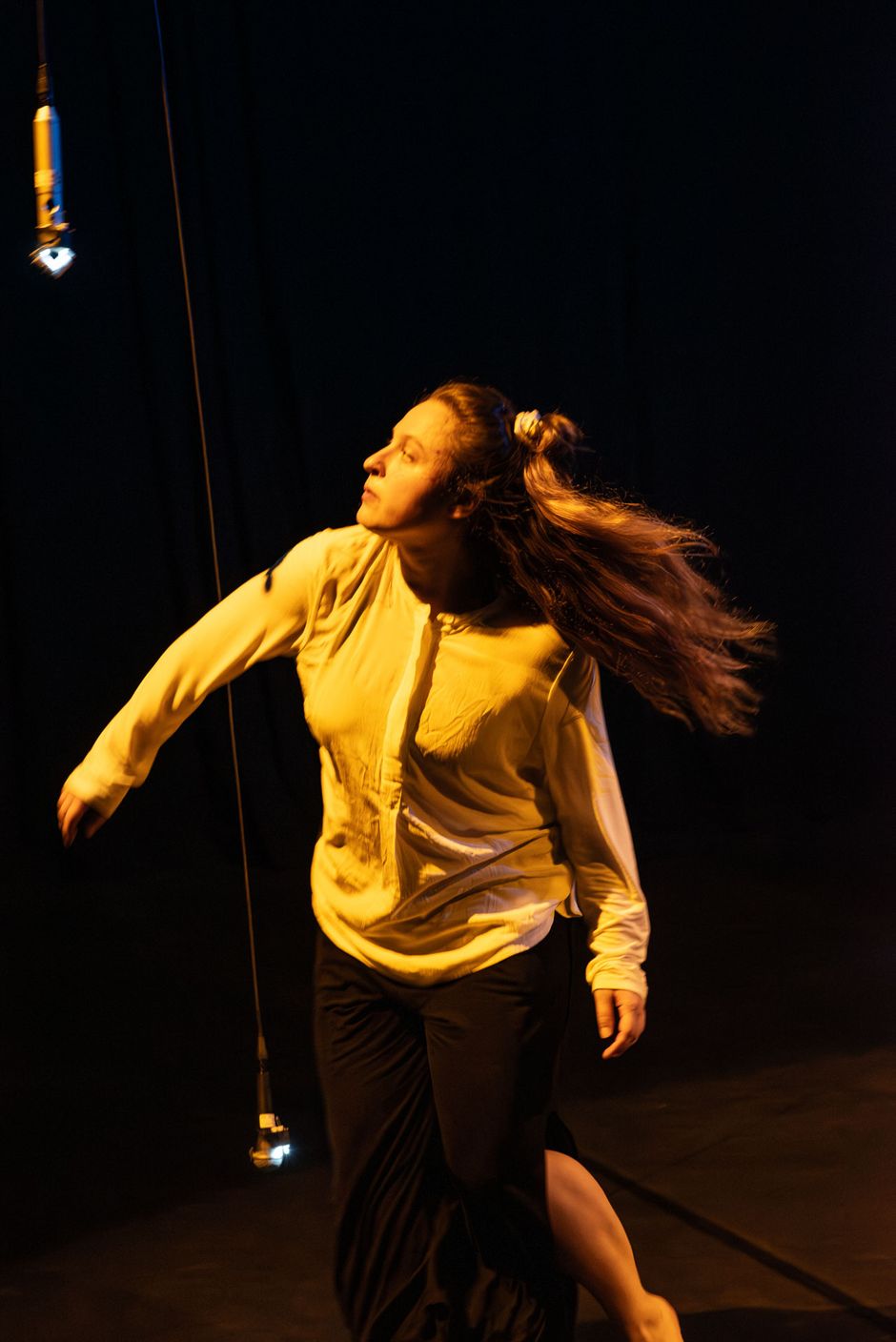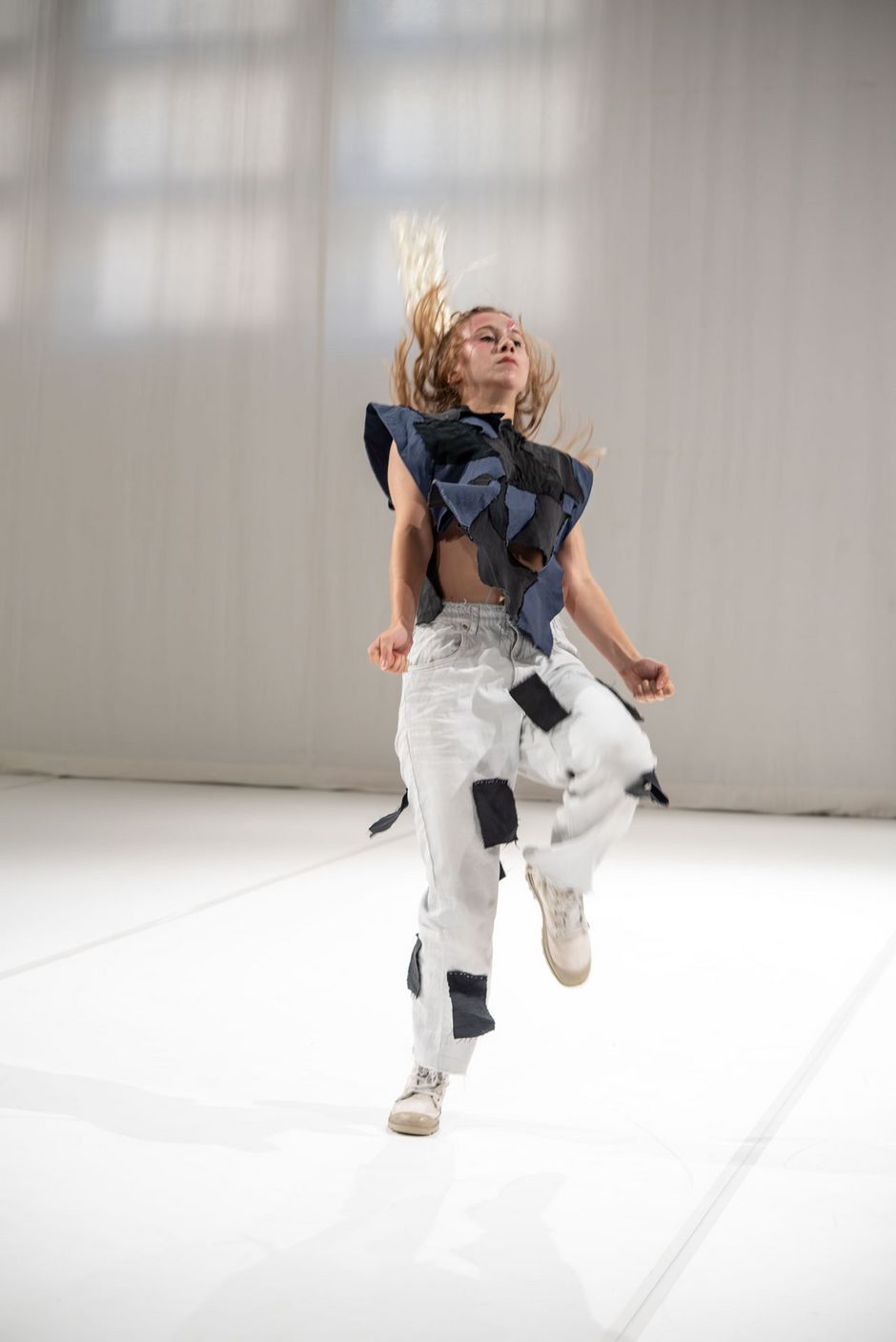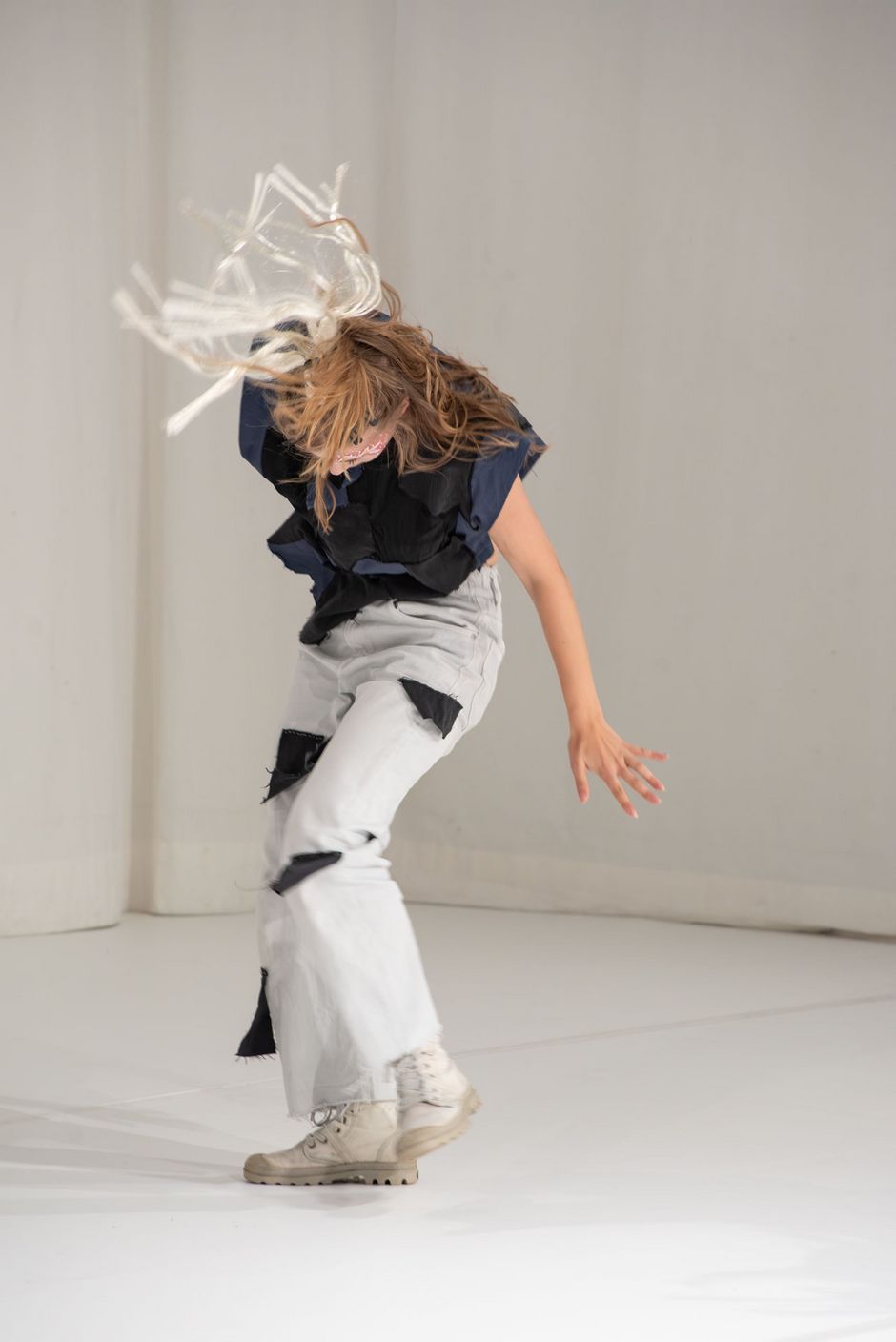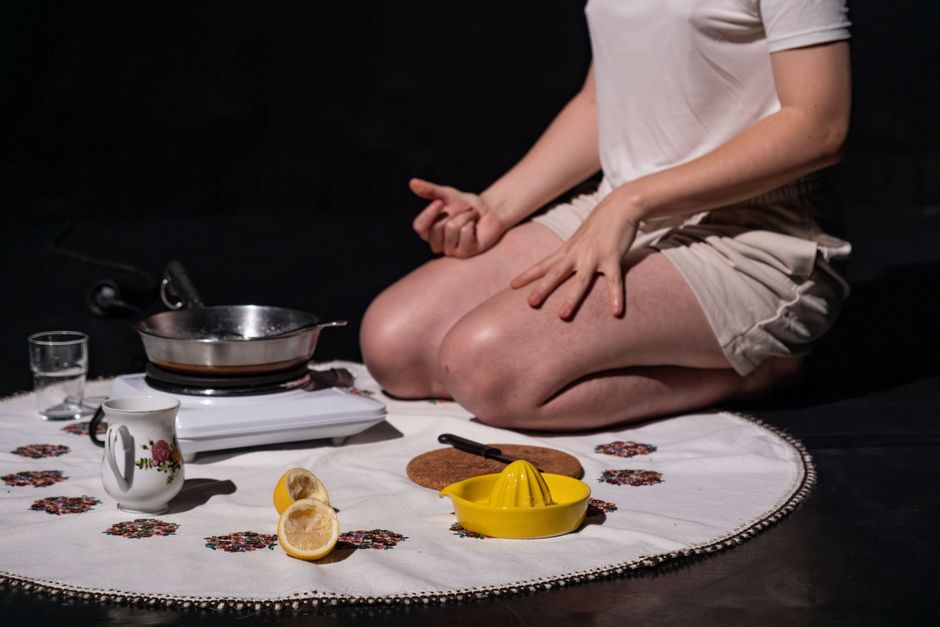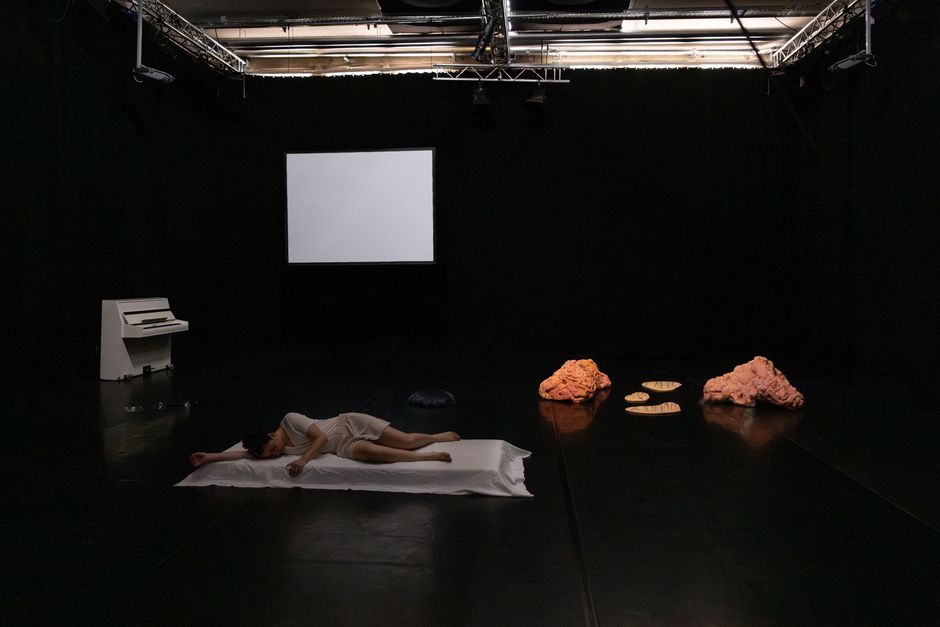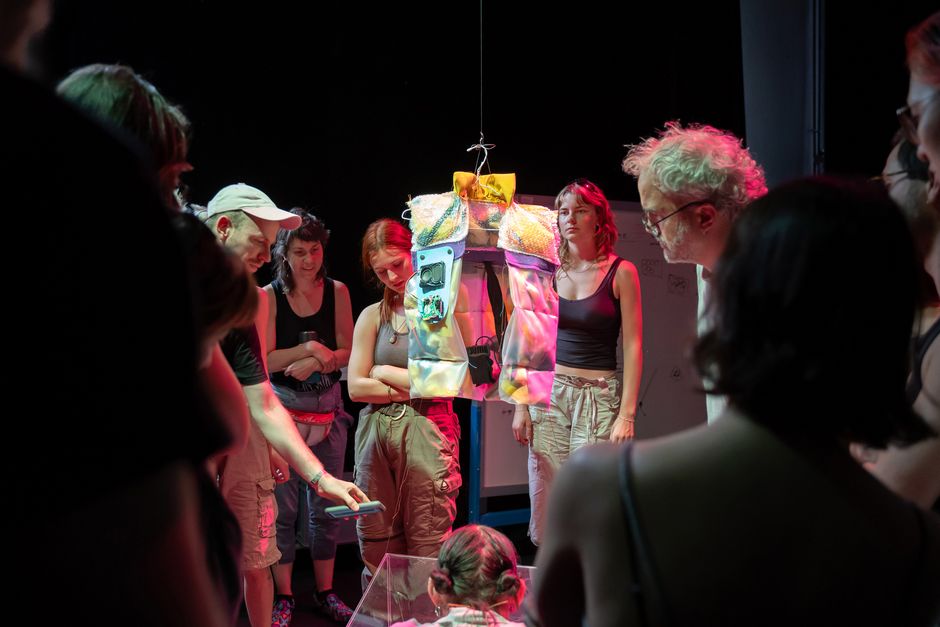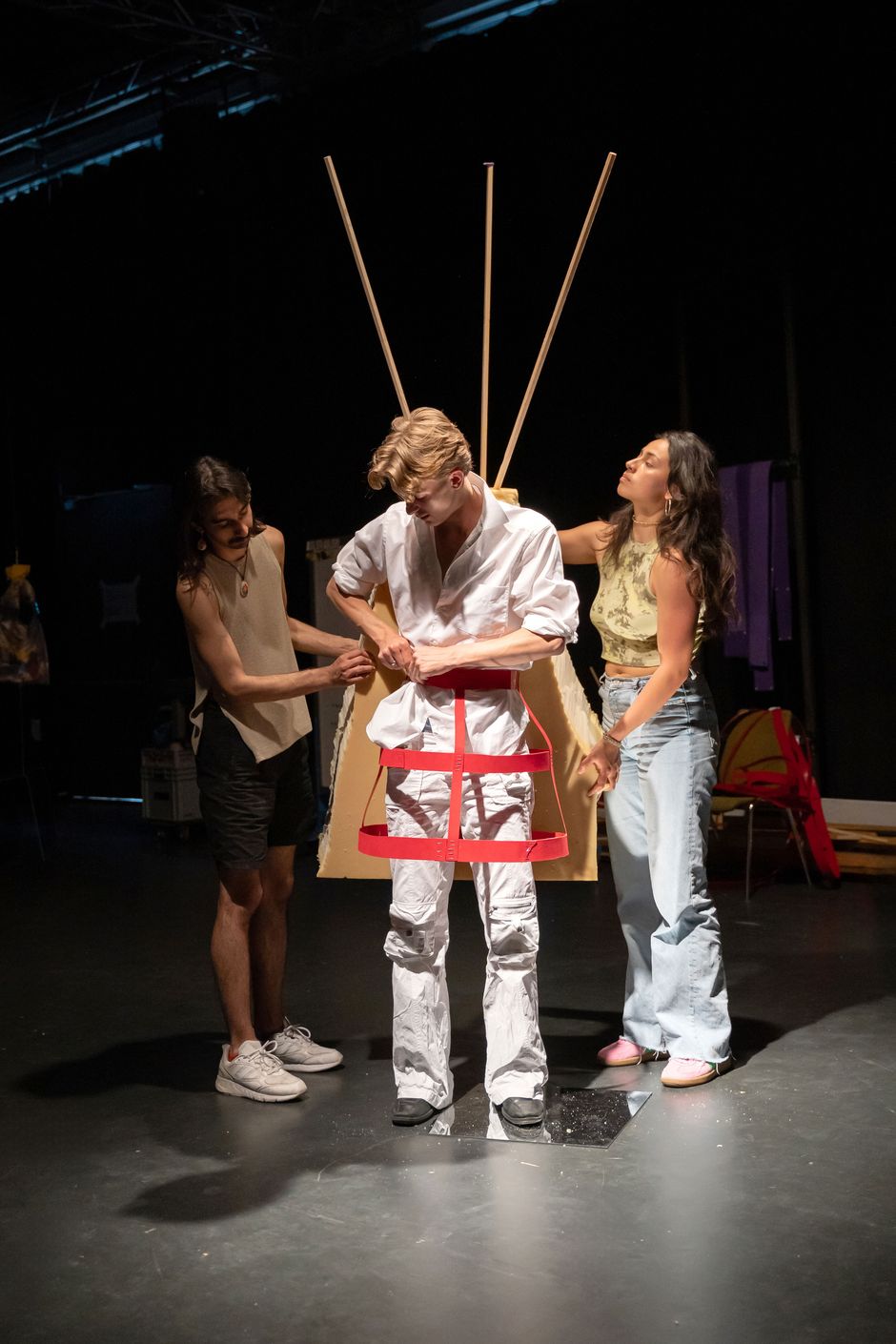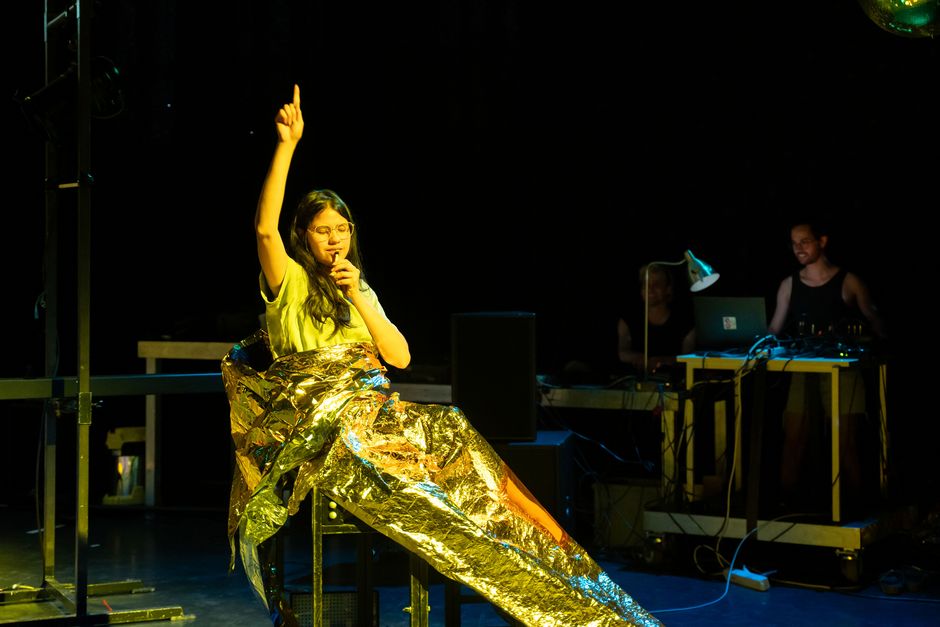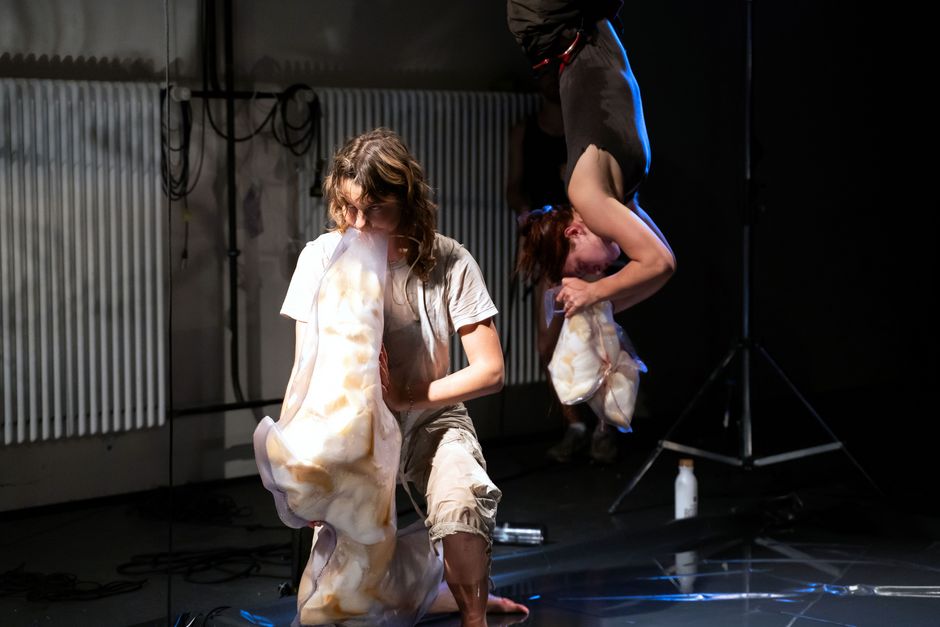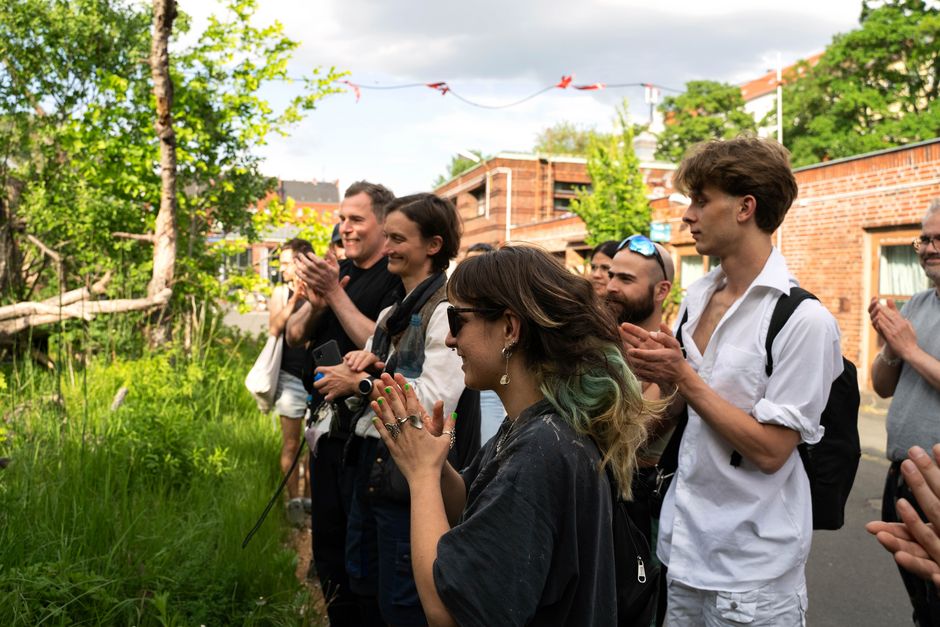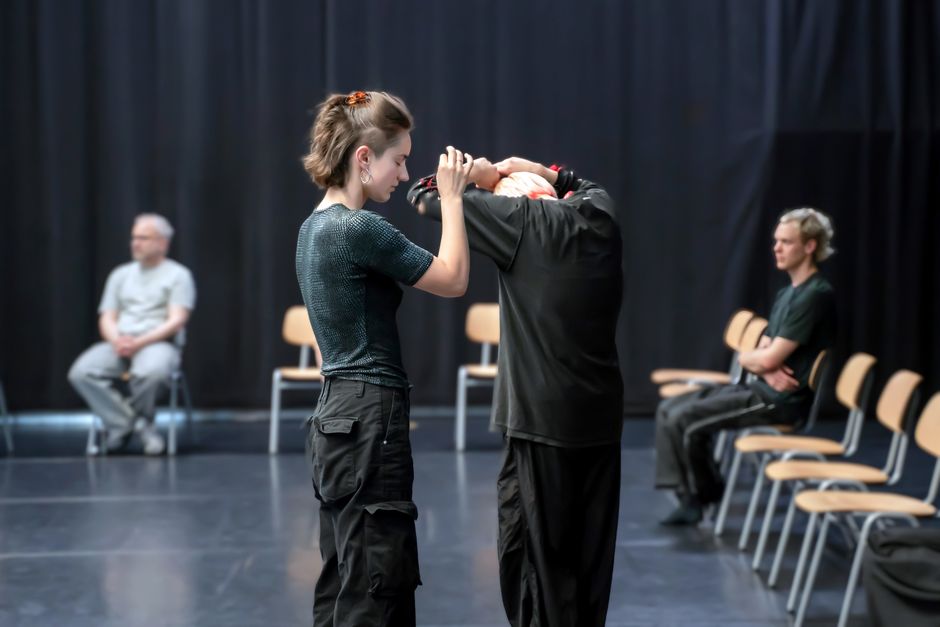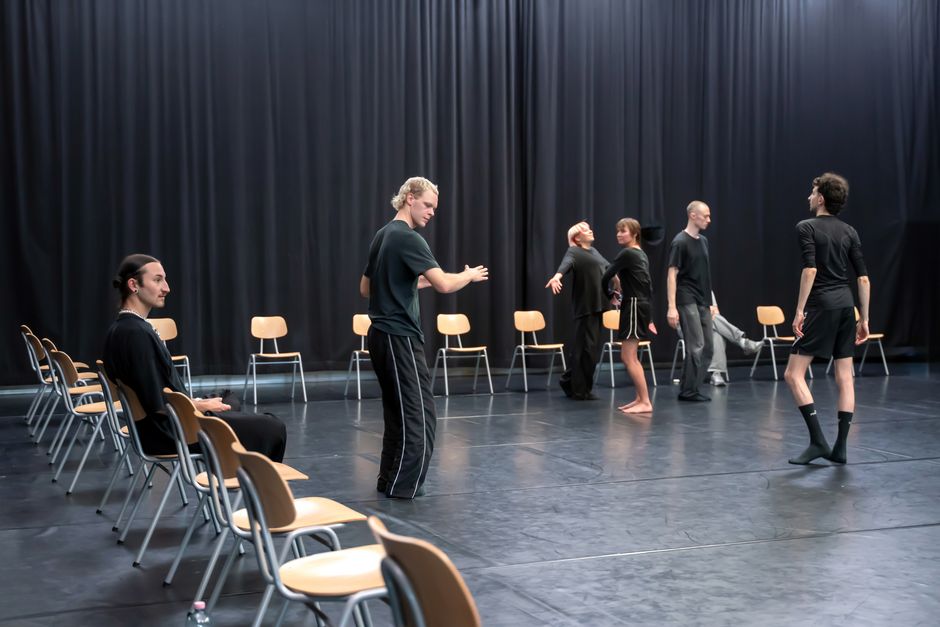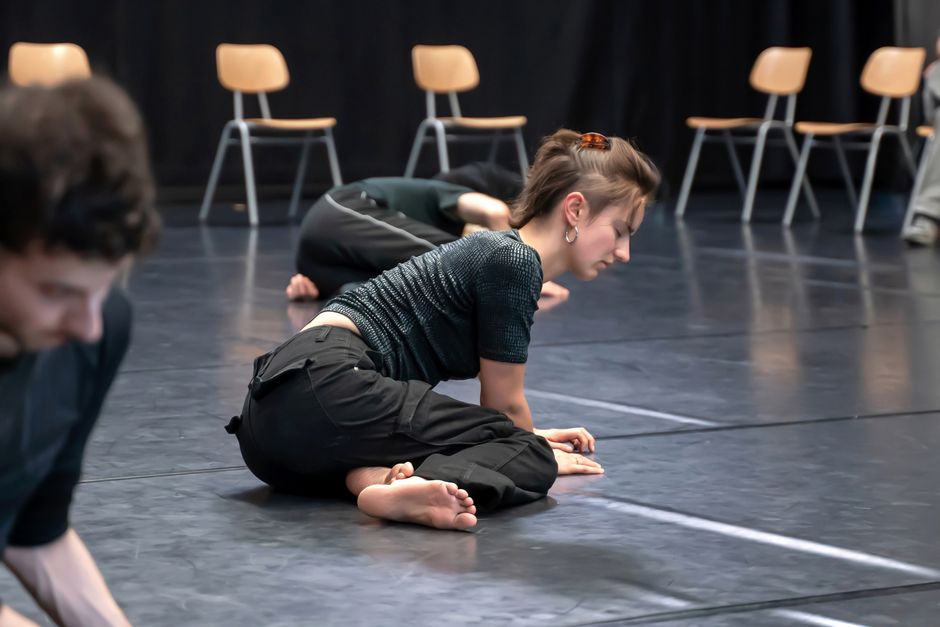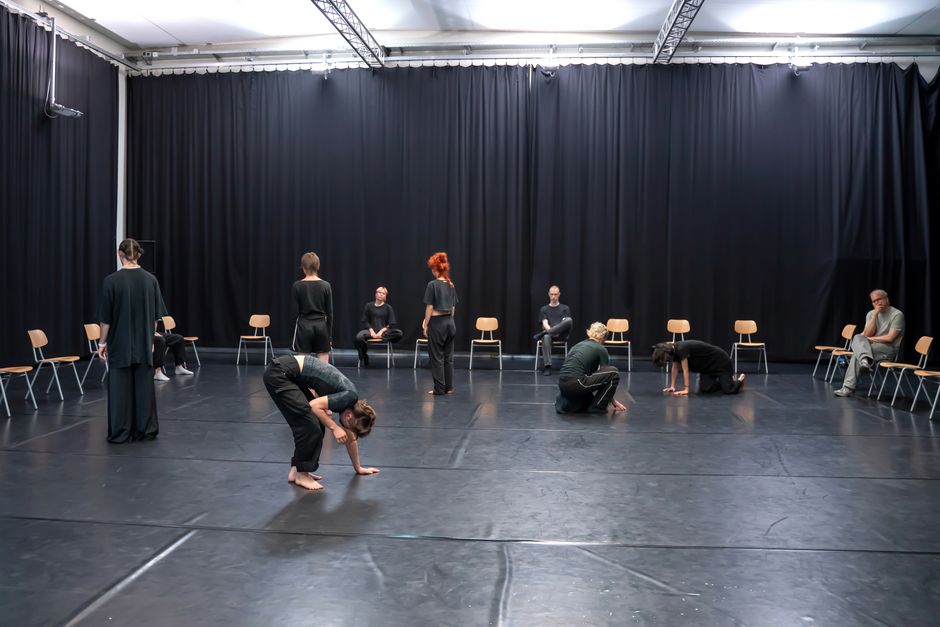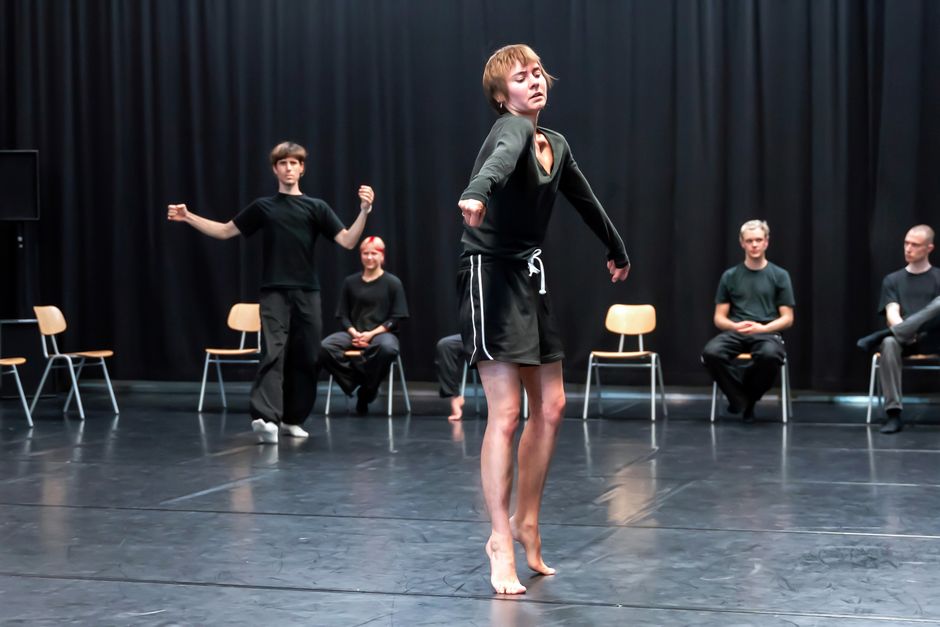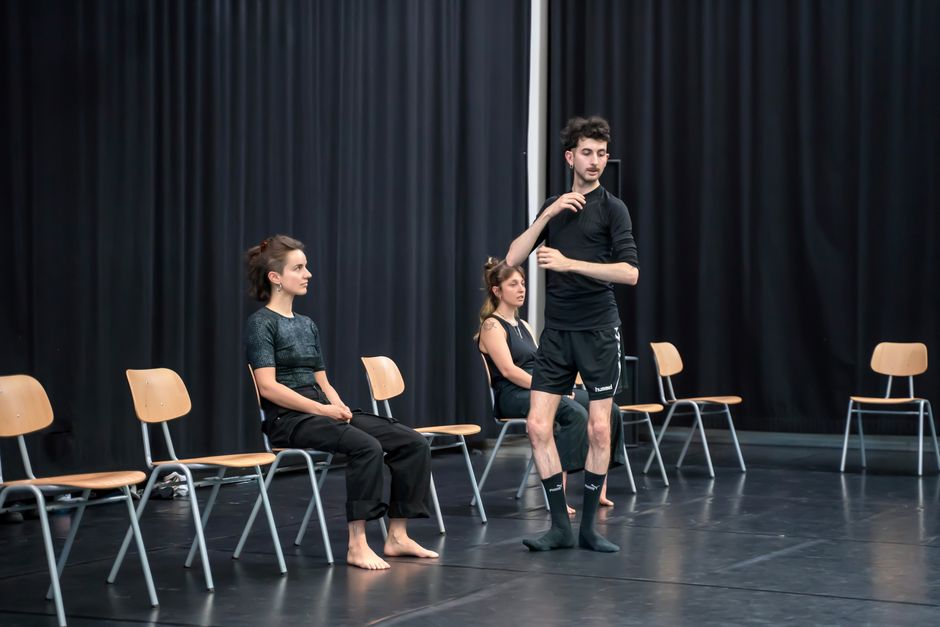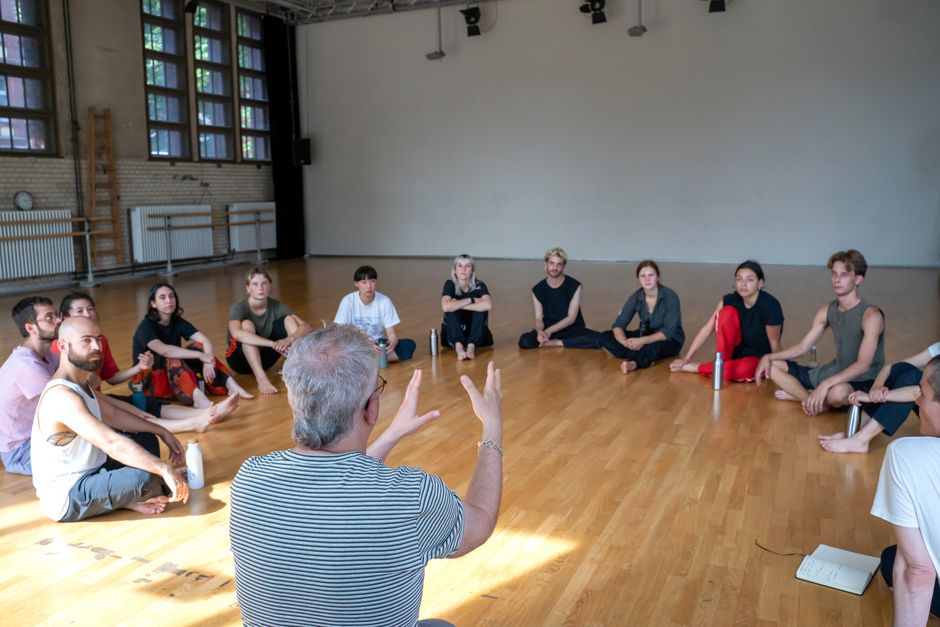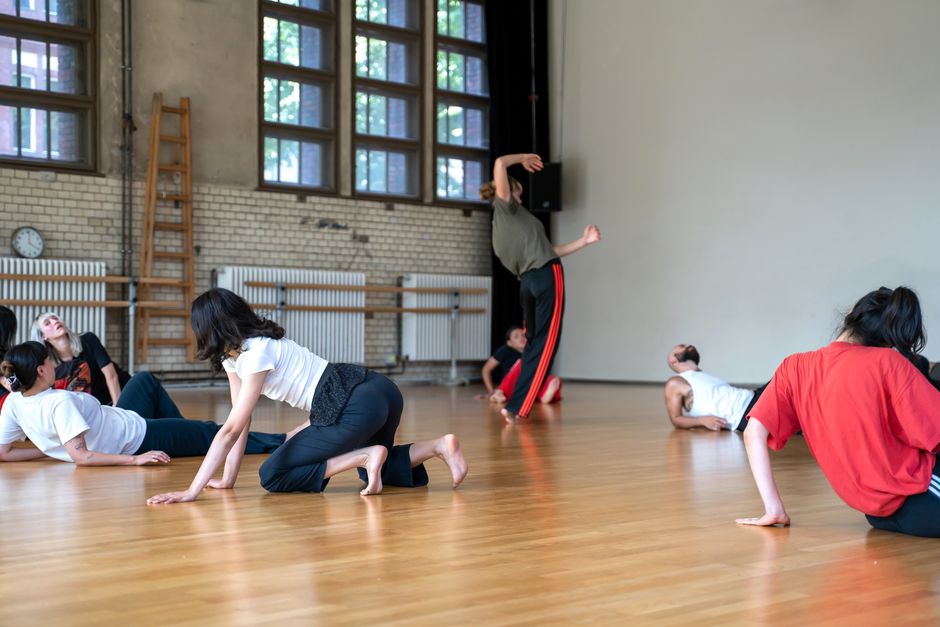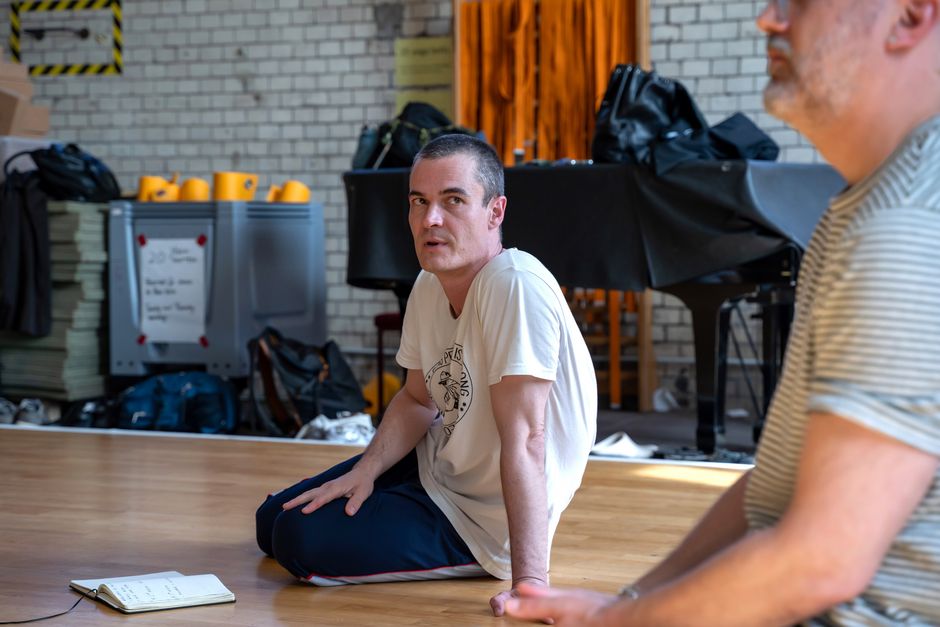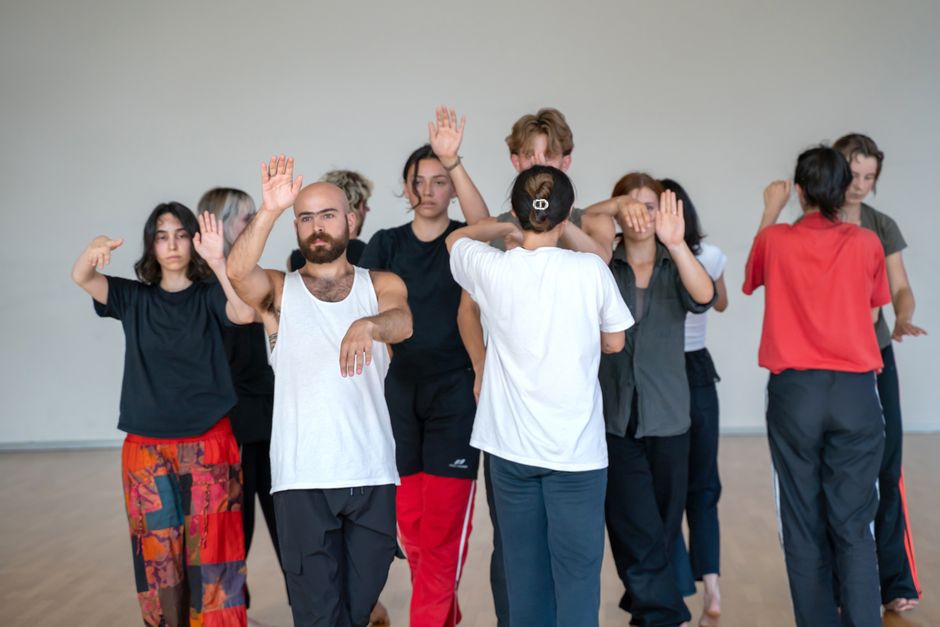BA Dance, Context, Choreography
Bachelor of Arts
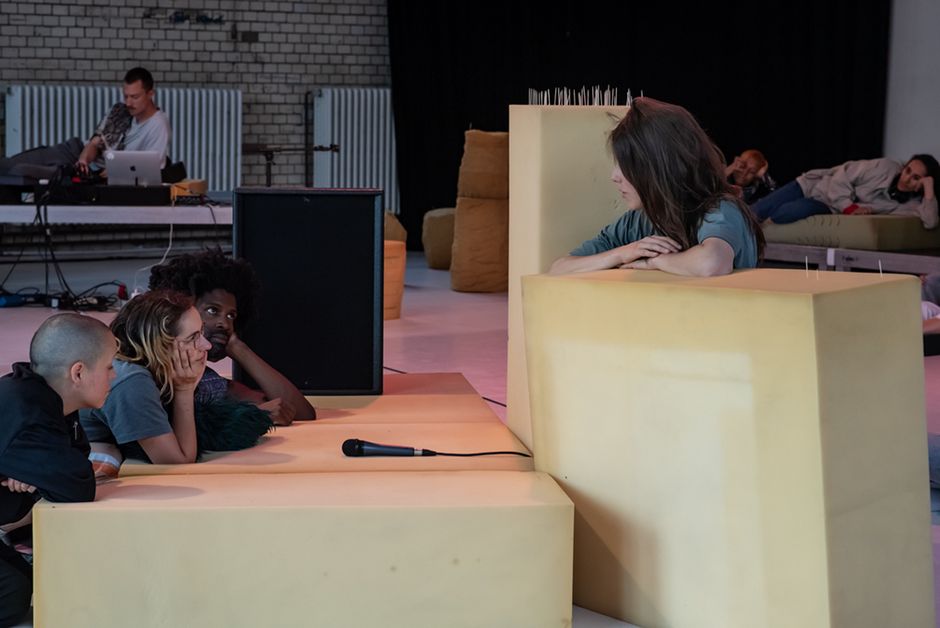
For all information on application please visit the site of the University of the Arts Berlin.
The Bachelor of Arts Dance, Context, Choreography course offers a practice-oriented education in six semesters. The objective is to develop artistic work in the field of choreographic theory and practice.
The course offers students the opportunity to educate and prepare themselves for an artistic and creative activity in the field of contemporary dance/choreography. The programme is realized in close interaction with practitioners from Berlin’s artistic context and in cooperation with the HZT’s MA courses and international guest teachers.
The curriculum’s core is a structure made up of intensive block seminars taught by local and international artists and theoreticians; this structure is continually accompanied by a team of teachers and the HZT administration.
A strong focus of the course is placed on the students’ own artistic goals in student project work; this emphasis challenges students to find an experimental approach to dance and choreography.
The documentation and discussion of students’ artistic projects in groups is an integral element of the curriculum: preparing, analyzing and documenting material taught in block seminars and rehearsing the respective roles* in creating artistic works. Thus an understanding of artistic work’s multifarious, complex relationships of meaning, politics and social or economic contexts is trained. (*e.g., performer, director, choreographer, dramaturge, producer, critic.)
The course calls for students to work independently on artistic and theoretical projects, to take on responsibility for project work in groups and to cooperate in shaping their curriculum.
The degree course’s objective is to educate artists who can articulate and realize their own ideas and understanding of dance as an art form and to thereby provoke new impulses in this constantly changing artistic environment.
Details study programme
Module 1: Modes of Dance and Training I (12 ECTS)
In the Dance and Training Types module I which takes place during the first two semesters of study, dance forms and types of training are introduced and the foundation for the development of independent training is taught.
The principles of different practice-orientated dance styles and types of training are taught. The recognition and execution of applied movement principles and qualities are foregrounded. Perception as well as analytical methods of observation are trained. The ability to differentiate between movement styles is developed and an overview (in combination with Module 3) of historical and aesthetic contexts is elucidated.
Individual approaches to training are developed and applied in which both the generation and the analysis of movement and training sequences are trained. Fundamental questions of training development are examined through the use of different approaches to improvisation and choreography.
The fundamental ideas of applied anatomy are taught and the students are prepared for the use of their own bodies and those of others in a responsible way.
Module 2: Modes of Dance and Training II (20 ECTS)
Requirement for participation: Successful completion of Module 1.
In the Dance and Training Types module II which takes place from the third to the sixth semester of study, understanding of the field of dance forms and types of training is deepened and the student is guided in the further development of their own training.
The understanding of different practice orientated dance styles and types of training is deepened in which the recognition and execution of applied movement principles and qualities are foregrounded. Perception as well as analytical methods of observation are trained. The ability to differentiate between movement styles is developed and an overview (in combination with Module 3 and 4) of historical and aesthetic contexts is elucidated.
Individual approaches to training are developed and applied in which both the generation and the analysis of movement and training sequences are trained. Fundamental questions of training development are examined through the use of different approaches to improvisation and choreography. The fundamental ideas of applied anatomy are developed and the students are prepared for the use of their own bodies and those of others in a responsible way.
Module 3: Movement Analysis and Theories of the Body I (8 ECTS)
In module 3, which takes place from the first until the third semesters, the foundations of the complex relationships between the body and movement behaviour is introduced. Different methods of movement analysis are introduced and students are exposed to different theories of the body.
Basic anatomical knowledge is taught and the reciprocal relationship between body and metabolism is examined. The foundations of psychomotor effects are learned in order to be able to observe and analyse motion and movement intervention. The problems of body and movement are developed in order to minimise injury and in order to be able to work responsibly with movement in artistic projects.
Different concepts of the body are introduced on the basis of introductory cultural, sociological and philosophical positions. Basic theories of the body are taught in order to be able to understand and contextualise movement processes and body practices.
Module 4: Movement Analysis and Theories of the Body II (7 ECTS)
Requirement for participation: Successful completion of module 3.
In the Movement Analysis II module, which takes place from the fourth until the fifth semester, a deeper understanding of the complex relationships between body and movement behaviour is taught. Training in methods of movement analysis and theories of the body continue.
Basic anatomical knowledge is taught and the reciprocal relationship between body and metabolism is examined. The foundations of psychomotor effects are learned in order to be able to observe and analyse motion and movement intervention. The problems of body and movement are developed in order to minimize injury and in order to be able to work responsibly with movement in artistic projects.
Different concepts of the body are introduced on the basis of introductory cultural, sociological and philosophical positions. Building on module 3, theories of the body are taught in order to be able to understand and contextualise movement processes and body practices.
Module 5: Other Art Disciplines / Art Theory I (10 ECTS)
Module 5, which takes place during the first two semesters, is concerned with introducing forms and structures of the contextualisation of dance and choreography in other media, in theories of art and aesthetics and curatorial as well as dramaturgical fields.
In this module, collaborative ways of working with different media are introduced and compared to the reciprocal relationship of dance to other art forms and practices. How certain media and disciplines complement one another is explored instructively.
The students are introduced to the diverse currents of modern art theory and art history. Dance and performance art are historically contextualized and artistic concepts and ideas are studied with examples of processes and developments of mutual construction and acquisition.
The basis of curatorial strategies in the field of dance dramaturgy in relation to cultural politics is introduced. Curatorial questions are worked through in terms of their cultural political, market strategic, economic and aesthetic principles. Dramaturgical and curatorial work practices and trends in the performing and visual arts are compared.
Module 6: Other Art Disciplines / Art Theory II (13 ECTS)
Requirement for participation: Successful completion of module 5.
Module 6, which takes place between the third and fifth semester, examines forms and structures of the contextualisation of dance and choreography in other media, in theories of art and aesthetics and curatorial as well as dramaturgical fields in more depth.
Collaborative ways of working with different media are further developed and compared to the reciprocal relationship of dance to other art forms and practices. The approaches of different media and disciplines are further and independantly examined.
The diverse currents of modern art theory are further explored. Dance and performance art are historically contextualized and artistic concepts and ideas are studied by example through processes and developments of mutual construction and acquisition.
Knowledge of curatorial strategies in the field of dance dramaturgy in relation to cultural politics is deepened. Dramaturgical and curatorial work practices and trends in the performing and visual arts are compared and analysed. Cultural-political questions are examined with special emphasis on the role of dance and its place within different cultural scenes.
Module 7: Documentation / Communication (11 ECTS)
The module takes place during the first until the third semester, the forms of pre and post processing of the course is taught. Individual forms of research are discovered and the formulation of criticism and critical analysis is incorporated. Cultural and artistic production methods are examined.
The students get an initital overview of the different forms of documentation and archiving of processes and works in dance and performance art. They learn how to use existing archives and how to document their own artistic work.
Methods of research and information gathering are introduced which can be applied to individual questions and artistic projects.
The students develop methods and contexts in which to articulate the things they see, learn and produce in the course of their studies. How are assessment criteria developed collaboratively for artistic processes and how is a culture of critical debate fostered which is itself continuously assessed and updated?
Knowledge and experience of freelance artistic practice is taught and the structural, legal and financial bases of artistic professional practice is introduced. Alternative projects and working methods are presented which reflect the economic and social conditions of working processes.
Module 8: Choreography / Composition I (15 ECTS)
The module takes place over the second and third semesters.
The goal of this module is to learn to generate movement material in the context of collective artistic projects and to learn about spatial and temporal organisation. To these ends, the theoretical and practical development of different choreographic and compositional processes are foregrounded.
The practical use and theoretical placement of improvisation and composition in real time is investigated and presented parallel to the placement and development of compositional procedures.
Formal and structural compositional elements are taught through the analysis of existing works, working with scores and the exemplary study of contemporary dance and performance repertoires.
Dramaturgical Perspectives are examined in relation to choreographic techniques. How dramaturgical questions are reflected in artistic and compositional processes.
Module 9: Choreography / Composition II (22 ECTS)
Requirement for participation: Successful completion of Module 8.
Building on module 8, the objective is to learn and define the generation of movement material in the context of collaborative artistic projects and to be able to organise it structurally and formally. To these ends, a deepened knowledge of different choreographic and improvisational techniques are foregrounded.
The practical use and theoretical placement of improvisation and composition in real time is investigated in more depth and presented in parallel to the placement and further development of compositional procedures.
Formal and structural compositional elements are taught through the analysis of existing works, working with scores and the exemplary study of contemporary dance and performance repertoires.
Dramaturgical Perspectives are examined in relation to choreographic techniques. How dramaturgical questions are reflected in artistic and compositional processes.
Module 10: Project Work I (16 ECTS)
In module 10 which takes place over the first two semesters, the students work independently on their first project sketches and are introduced to project-related working procedures and methods.
The student independently investigates suitable formats for the development, creation and presentation of their artistic or theoretical interests.
The student develops initial forms for post processing, archiving and documentation as well as artistic evaluations of seminars and teaching contents and makes these available to other students.
The students are introduced to working with mentors. The work can be individual or developed with a group of fellow students within which the division of roles is clear.
Module 11: Project Work II (26 ECTS)
Requirement for participation: Successful completion of Module 10.
In this module which takes place over the third to fifth semesters, the student works on independent projects and develops his or her competences in project-related working procedires and methods.
The student examines suitable formats for the development, creation and presentation of their artistic or theoretical interests. They develop their own artistic and/or theoretical positions.
The student presents more developed forms for post processing, archiving and documentation of their own artistic processes and make these available to other students.
The student deepens his or her work with mentors in their projects. The work can be individual or developed with a group of fellow students within which the division of roles is clear.
Module 12: Project Work III (Bachelor assessment) (20 ECTS)
Requirement for participation: Successful completion of Module 10 and 11.
In this module, which takes place during the sixth semester, the students work on independent projects and develop their competences in project- related working procedures and methods.
The student develops suitable formats for the creation and presentation of their artistic or theoretical interests. They formulate their own artistic and/or theoretical positions.
The student presents substantiated formats for post processing (archiving / documentation) which evaluate their studies and evaluate their own artistic processes, making this available to other students.
The student deepens their work with mentors in their projects.
Bachelor work see examination regulations. The work can be individual or developed with a group of fellow students within which the division of roles is clear.
For further information and the application document please go to the study information site of the University of the Arts Berlin.
BA DANCE, CONTEXT, CHOREOGRAPHY AT HZT BERLIN
STARTING OCTOBER 2025 // DEADLINE: December 1, 2024
A time to explore and discover; both individually and in a collaborative surrounding.
We are inviting applications from individuals who are motivated to:
• immerse themselves in a full-time practice-oriented study of six semesters
• create projects in an artistic environment of dance, context and choreography, of theory and practice
• engage in a wide range of physical body practices
• expand their own ideas and understanding of dance as an art form
• practice forms of communication, documentation, presentation and creative response
• investigate ways of nourishing and provoking new impulses and forms within an artistic environment
• be part of a programme conceived in close relation to Berlin's artistic scene, HZT's MA programmes and international guests
• engage in an exchange with other artistic disciplines at the Berlin University of the Arts (UdK) and the Hochschule für Schauspielkunst Ernst Busch (HfS), which share the responsibility for running HZT
• combine the programme’s specific educational input with self-initiated artistic and theoretical projects
Accessibility
If you have any questions about accessibility in the application procedures/study programmes, please contact:
accessibility[at]hzt-berlin.de
HZT Office: +49 (0)30 3185-1400
